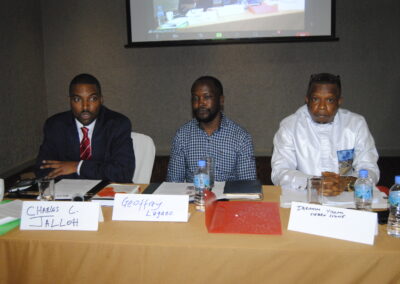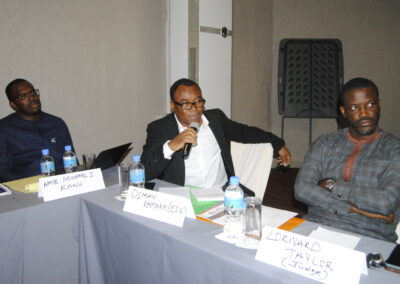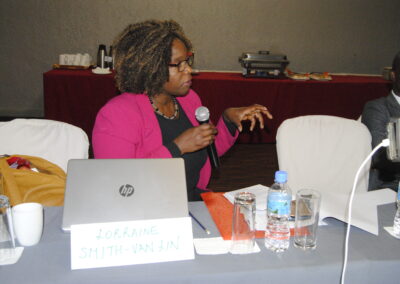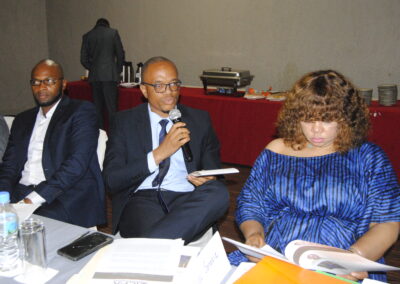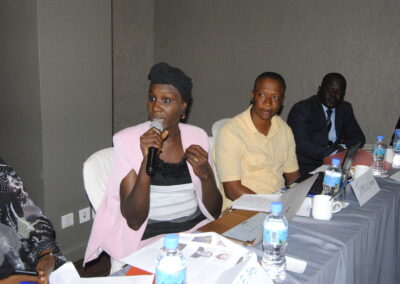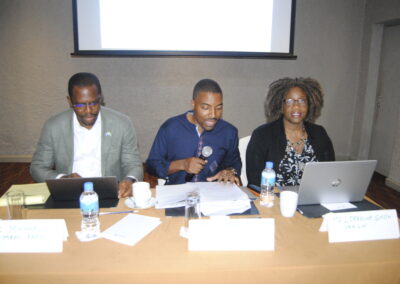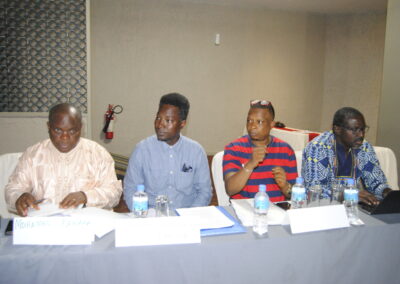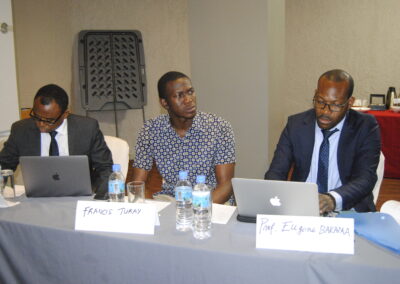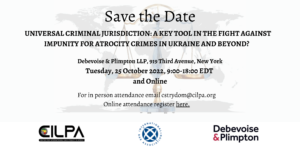7 – 8 October 2022 Radisson Blu Mammy Yoko Hotel 17 Lumley Beach Rd, Freetown, Sierra Leone, and on ZOOM
The Center for International Law and Policy in Africa (CILPA), convened an independent experts workshop on “Bringing the African Perspective to the ICC Reform Discussion” on Friday, October 7, and Saturday, October 8, 2022, Radisson Blu Mammy Yoko Hotel, 17 Lumley Beach Rd Freetown, Sierra Leone.
The International Criminal Court (ICC) has faced mounting criticism over the past few years as it struggles to fulfil its ambitious mandate in the Rome Statute. Poor quality investigations and prosecutions, controversial judicial decisions, institutional infighting, and a seeming lack of accountability for poor performance appear to have compounded mounting internal and external problems, including low budgets, limited state cooperation and political backlash from powerful States. In response and based on a proposal of the ICC principals in a May 2019 letter, the Bureau of the ICC Assembly of State Parties (ASP) adopted a resolution on 6 December 2019 in which the States Parties recognized the multifaceted challenges currently facing the ICC and established an Independent Expert Review (IER) process. The IER was billed as an “inclusive State-Party driven process for identifying and implementing measures to strengthen the Court and improve its performance.” Given the various criticisms of the ICC, the review process seemed like a welcome opportunity to strengthen the efficiency, credibility, and legitimacy of the ICC system. In light of the recent 20th anniversary of the historic entry into force of the Rome Statute, on 1 July 2022, ICC States Parties and global civil society made efforts in a difficult COVID-19 pandemic context to participate in the ICC institutional improvement process. But for the review process to succeed, it needs to take into account the views of all States from all regions of the world as well legal academia and victims in ICC situation countries. The concerns of key stakeholders, such as the 33 State Parties from the African region which have been among the strongest supporters and also strongest critics of the ICC, are arguably crucial. In fact, African States submitted numerous proposals for reform of the ICC system years before the formal reform process was put in place. Yet, once the ASP created a formal review process, the extent to which the previous African State proposals were addressed by the IER in its report remains unclear. As was the level of African State and African civil society participation in the ongoing ICC reform discussions. The seeming failure to account for the African State views on how to improve the ICC system may constitute a significant missing piece in the ongoing reform discussions.
CILPA, with the support of the Open Society Foundations’ Africa Regional Office, has taken this opportunity to launch the African and the International Criminal Court Project to interrogate the relevant issues. CILPA commissioned three independent consultants to conduct research into the experience of African States with the aim of identifying key concerns about the distinct phases of the ICC reform process and proposing strategic recommendations to feed into the ongoing ICC reform discourse. The research and analysis carried out by the consultants formed the basis of a comprehensive analysis of the success and limitations encountered by the ICC in its ongoing reform process. Bringing together the consultants and invited legal experts, predominantly based in Africa, the Workshop was a working session with detailed examination of specific themes and provisions identified by the consultants. Over the course of the workshop, the experts provided feedback and input to the consultants’ papers. It provided an opportunity for participants to express views on how the reforms could be carried out to ensure more transparency and inclusivity of African concerns. The expert participants were give then opportunity reassess and provide ideas for revision and finalization of the draft papers. These contributions will enable the consultants to make the relevant adjustments to their respective papers before their various reform recommendations are published by CILPA.

